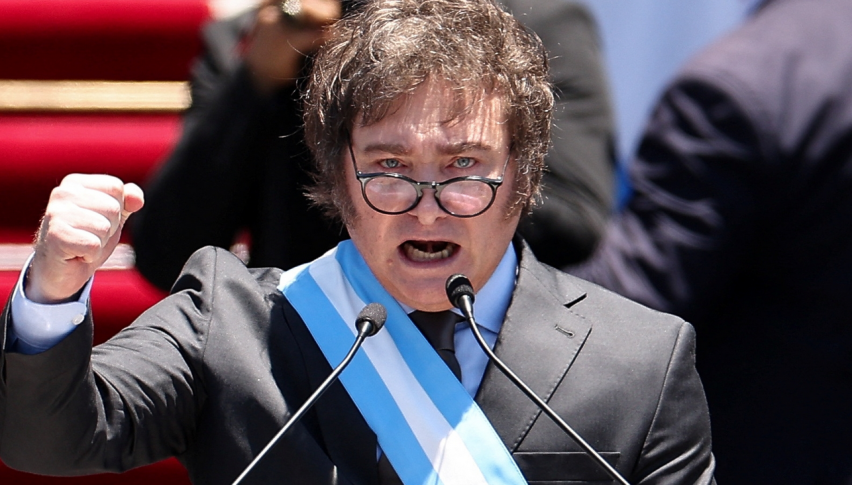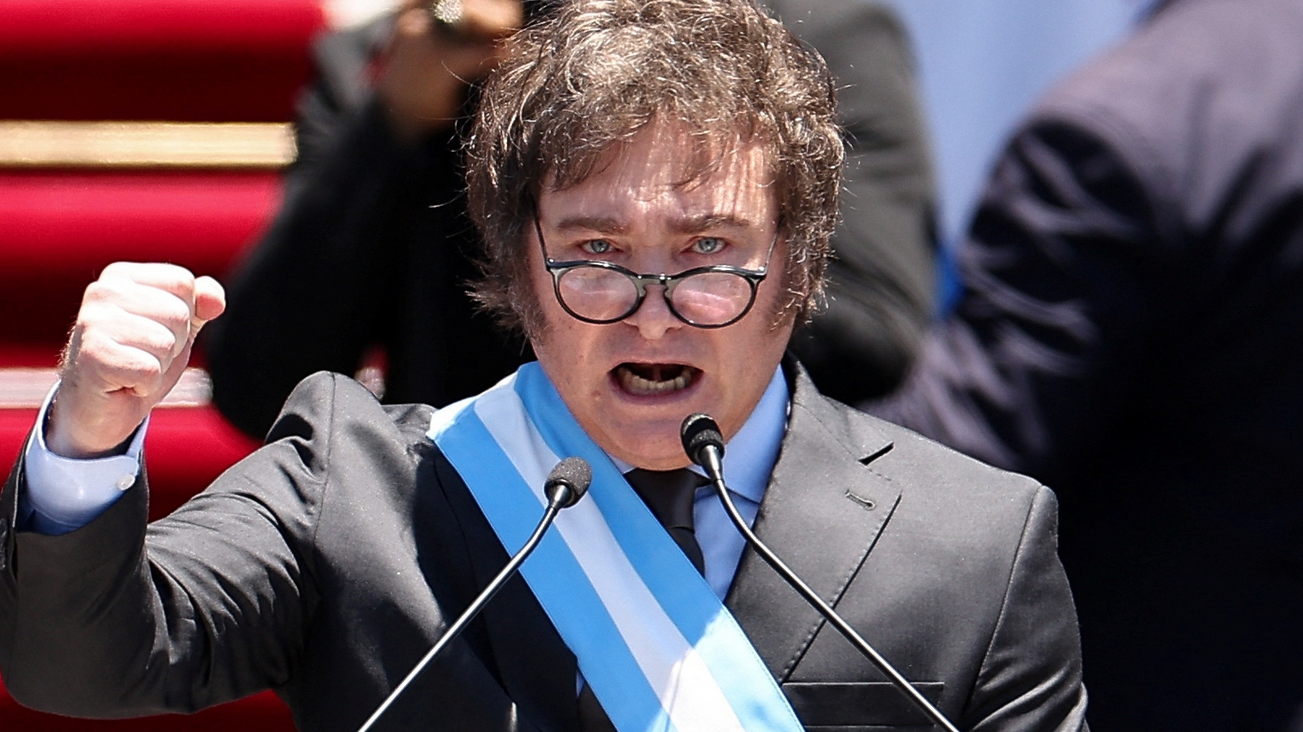Markets Celebrate Milei’s Year: Argentina’s Country Risk Declines Again
rgentina’s country risk index, measured by JPMorgan, dropped 30 points to 737 basis points, reaching its lowest level since April 2019.

Argentina’s financial markets largely saw improvements on Monday and Tuesday, marking one year since libertarian Javier Milei assumed the presidency and implemented strict spending cuts alongside orthodox economic policies.

The government’s achievements in balancing the fiscal budget and sharply reducing inflation—from 25.5% in December to below 3% currently—are cornerstones of Milei’s agenda. These measures have garnered broad public support, despite persistent high levels of poverty and indigence.
“Economic expectations continue to improve, with projections of lower inflation, higher growth, and exchange rate stability, all within a context of sustained fiscal surplus.
The S&P Merval stock index in Buenos Aires rose 1.2% in provisional closing, led by energy stocks. This follows a 2.5% decline last week due to profit-taking after a 22.2% rally in November.
Macroeconomic Data
Argentina’s country risk index, measured by JPMorgan, dropped 30 points to 737 basis points, reaching its lowest level since April 2019. Meanwhile, over-the-counter bonds gained an average of 0.8%, recovering from a slight 0.1% decline last week.
The recent 300-basis-point cut in Argentina’s monetary policy rate reflects fine-tuning of the government’s program, aiming to maintain a neutral real interest rate while easing the Treasury’s debt burden.
Last week, the Central Bank of Argentina (BCRA) reduced its monetary policy rate to 32% annually and its active repo rate to 36%, citing “the observed consolidation of inflation expectations.”
In the interbank market, the peso depreciated 0.30% to 1,016 per dollar, under regulated liquidity measures managed by the BCRA through currency purchases and sales linked to its reserves.
- Check out our free forex signals
- Follow the top economic events on FX Leaders economic calendar
- Trade better, discover more Forex Trading Strategies
- Open a FREE Trading Account
